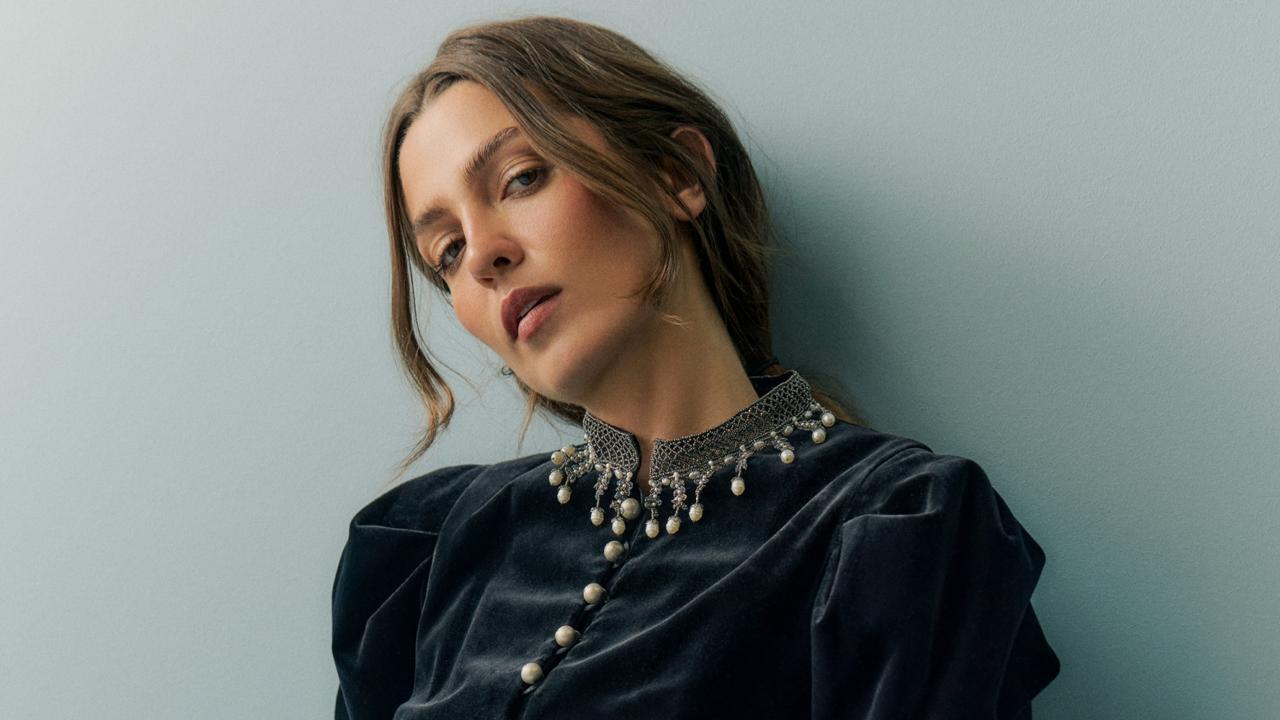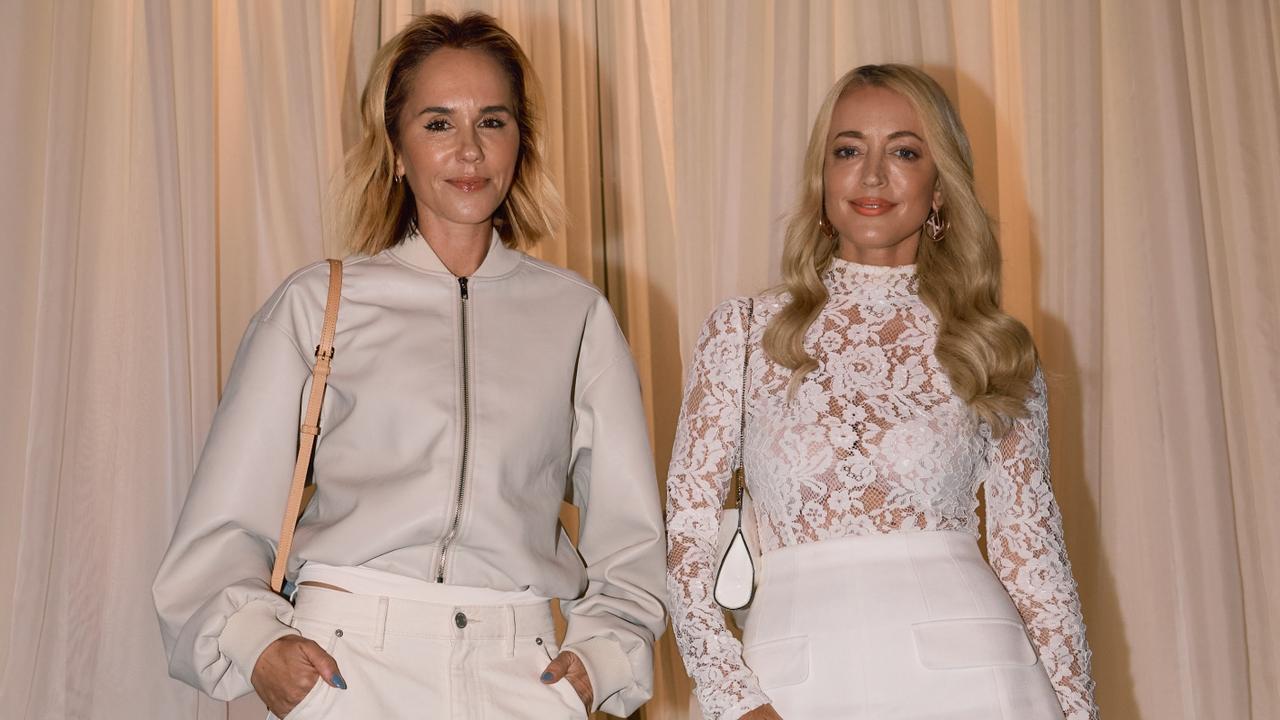Tina Arena: ‘Why I won’t take selfies with fans’
SHE shuns technology, is wary of social media and calls out radio sexism. Despite — or because of — this, the woman once known as “Tiny Tina” has survived 40 years in showbiz.
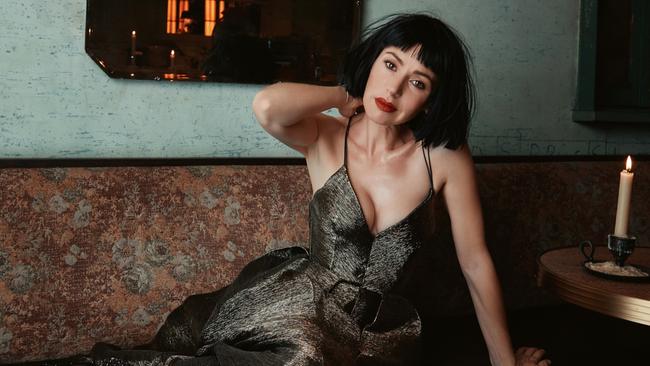
Stellar
Don't miss out on the headlines from Stellar. Followed categories will be added to My News.
IT WAS 1977 and much of the country had fallen in love with Tina Arena, the small girl with the huge voice on Young Talent Time, one of Australia’s most loved and watched TV shows.
However, not everyone was a fan of “Tiny Tina”, as she was known. Shortly after releasing her first album – aged 10 – Arena got an early lesson in the downsides of fame.
The singer’s memory of the early YTT days is hazy, but she vividly recalls a “ball-breaker” at her Melbourne school.
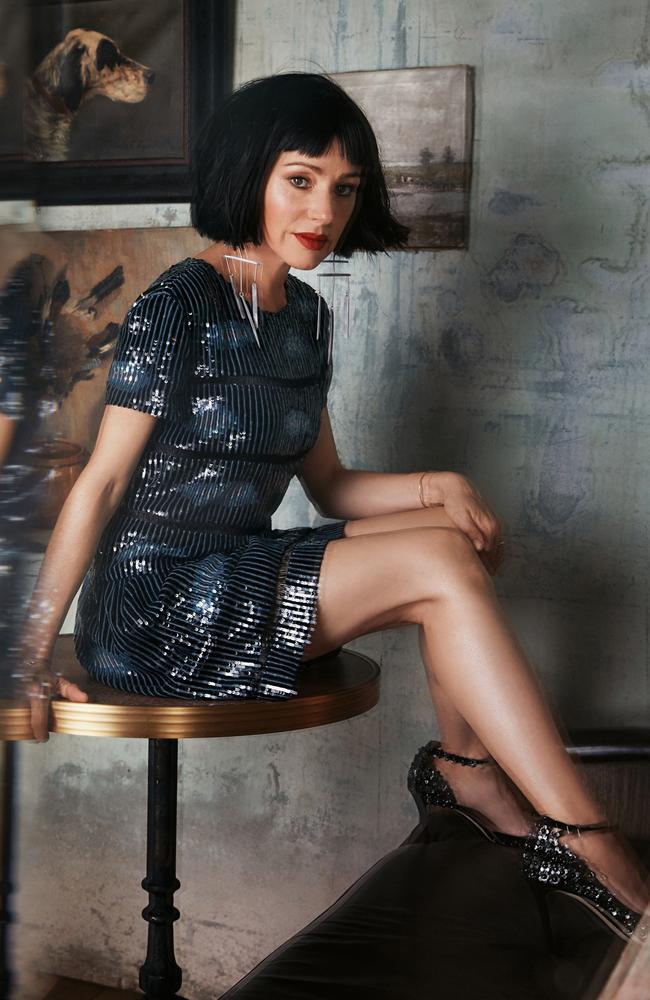
“She really didn’t like me and she said, ‘I’ll meet you after school.’ I said ‘fine’,” Arena says. “I remember waiting for her and she never showed up. That’s when I realised how stupid I was for turning up, but also how these people were gutless and all talk.
“I was really lucky. I copped a little bit but nothing major. Today bullies hide behind a screen; in those days at least they’d come up to your face.”
Arena has a unique perspective on how celebrity has changed over time. This year marks her 40th year in the music industry and, in November, she’ll celebrate her 50th birthday.
“I am not ashamed of those numbers,” Arena tells Stellar. “Who says I should hide that or cringe about it? What is there not to be proud of? Good health is worth celebrating. As for my career, it’s not about the commercial success; that’s been there, but the fact I have been able to do what I do, the fact I’ve been able to keep trying new things and I’m still inspired, that’s also worth celebrating.”
“I deliberately displaced myself.”
After a six-year stint on YTT – the longest of any of the show’s performers – Arena left in 1983 as a 16-year-old and tried her hand at a normal job: an insurance clerk.
She lasted just three months before quitting and returning to music. It wasn’t a smooth ride. Her first single, “Turn Up The Beat”, arrived in 1985 but it didn’t trouble the charts.
“It hasn’t aged well, that song,” Arena admits now. “I was 17, the experience was good, but the song just doesn’t speak to me.”
She worked to cut her teeth on the live music circuit, but for many she was still freeze-framed as Tiny Tina.
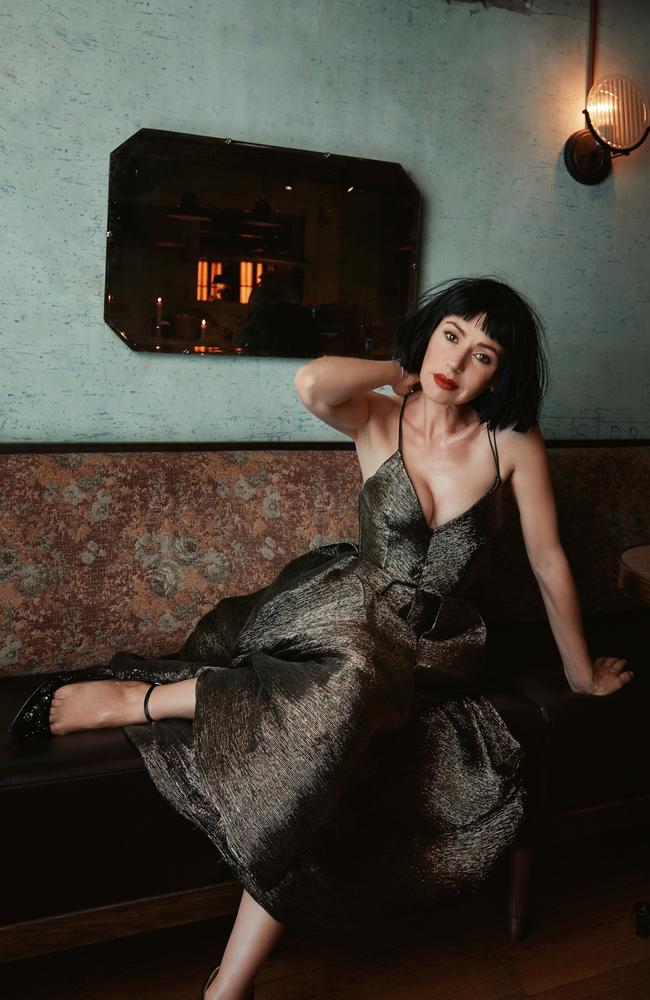
It took just four minutes for 1990’s “I Need Your Body” to change all that. The provocative video clip proved she was very much all grown up, and the song soared to No. 3 on the Australian charts. “That song moved my image from one place into another,” she says.
Arena’s relationship with the single proved rocky: she spent years disowning it, only to reclaim and reinvent it on her last tour. And now the original version is back, as the opening act of Greatest Hits Interpretations, a new compilation album marking her anniversary year. It’s a chronological snapshot of her most successful singles, as well as covers of her tunes by other artists.
After taking the songwriting reins as a co-writer in 1994, Arena’s career exploded, with “Chains” going Top Five in Australia, Top 10 in the UK and Top 40 in the US. Her Don’t Ask album sold more than two million copies globally, going 10 times platinum in Australia alone. She owned commercial radio, with “Sorrento Moon” and “Burn”, followed by 1997’s “Now I Can Dance” and “Heaven Help My Heart” all becoming staples on the airwaves.
“I was curious to see how other people lived. I’m still curious.”
Her personal life wasn’t going so well, however. She married her then-manager Ralph Carr in 1995 but, as she explained in her 2013 autobiography, had so many doubts on her wedding day that her family suggested she become a runaway bride.
The doubt-filled nuptials became a bitter divorce in 1999. When Arena was inducted into the ARIA Hall of Fame, her 15-minute speech (“No one told me to cut a second”) made no mention of Carr.
“I mentioned the people I feel are worth mentioning,” she says of that speech. “If there are people that feel they’ve missed out, maybe they should have a think about why.”
The autobiography, she adds, “was important to write. I wish I could have gone more in-depth, because it would have been a friggin’ cracker of a book!”
In 1997 came another turning point. Arena’s album In Deep introduced her to the French market and the country would become her second home. She has sold five million albums there and is viewed as a superstar. She’s currently working on her first original French-language album since 2008.
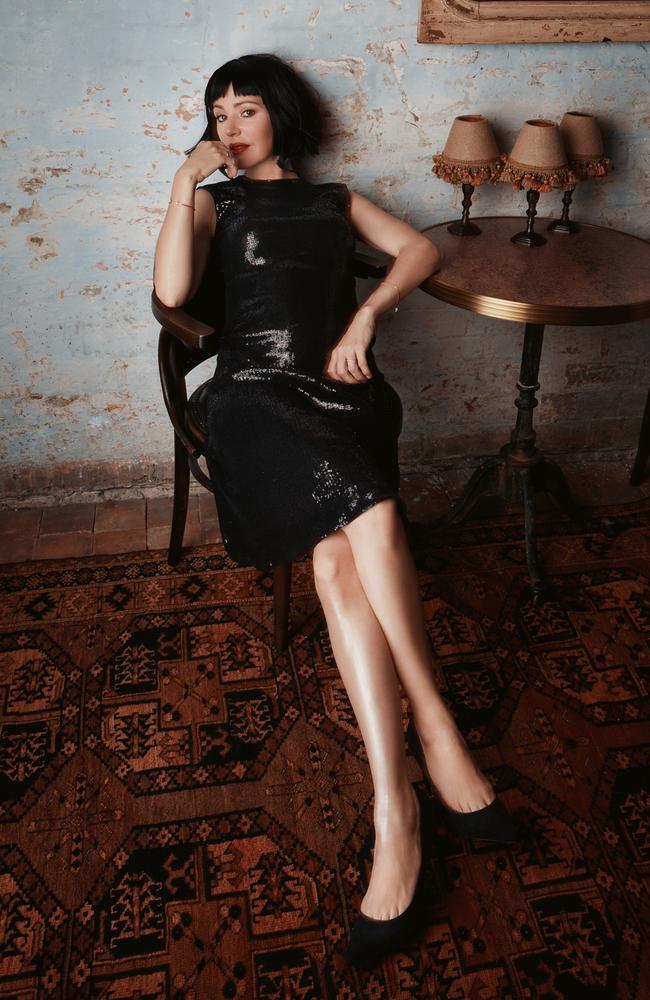
“I deliberately displaced myself,” Arena says of her move to France. “I was curious to see how other people lived. I’m still curious. I don’t think I’ve finished that journey. There’s another place or two I may go and inhabit for a while, new experiences I feel like I have to have.”
Arena has been happily unmarried to French artist Vincent Mancini for 17 years; their son Gabriel was born in 2005. He starts high school next year and is trilingual – fluent in English, French and Italian.
“Gab’s been educated between here and France for the last five years, but Vin and I always said as soon as he hits secondary school, we’ll live in Australia full-time,” Arena says. “He’s very sporty. Observant. Curious. Fun. He sings well. Really well. Beautiful little voice. He’s doing dance; he does soccer, tennis.
“If he wants to go and study voice when his schedule clears, he can decide later. I like to let his brain rest. He’ll say, ‘I’m bored,’ and I tell him it’s really important to be bored. You can’t be
stimulated 24 hours a day. Your body needs to rest.”
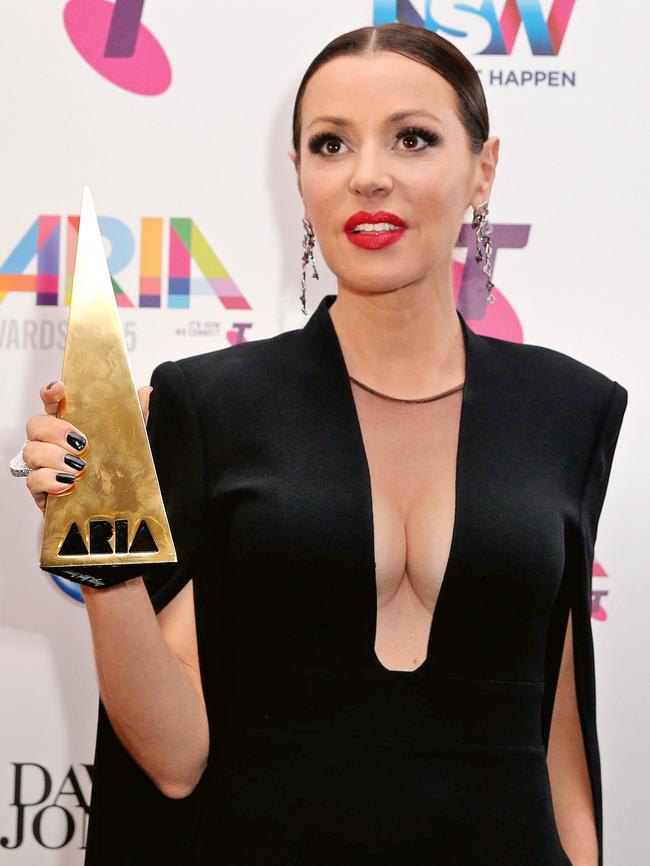
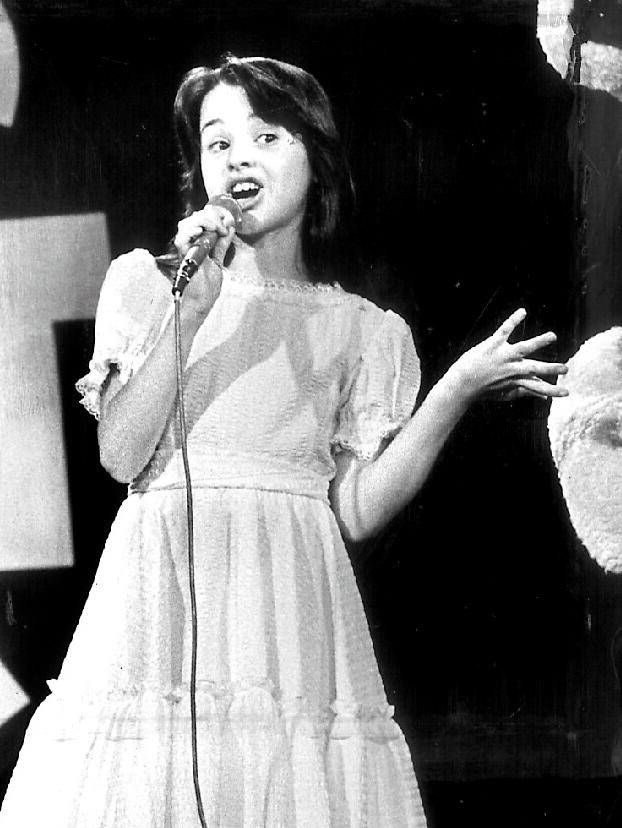
Arena and Mancini have tried to keep their son away from tech and gadgets where possible, but like most parents they’re beginning to crack.
“It doesn’t sit well with me,” Arena says. “We either monitor what he does [online] or we don’t allow it. I’m not the world’s most informed when it comes to technology. His generation knows how to manipulate a computer – I can’t do that and I’m not about to learn. We recently sat him down and read through the dos and don’ts about going online, in French and in English, and it took about five hours. I took two Panadols afterwards, to give you an idea of how it went.”
Arena likes Instagram (“I love visually beautiful things”) but leaves the rest of her social media to her team. “I’m just not interested in keeping up with the Joneses,” she says. “I’m not a celebrity. That’s a business model that came up after I started my career. I’m someone who’s fortunate enough to be celebrated, I feel privileged to have that. I earn my living the very old-fashioned way. Call me dull, but I’m kind of cool with it.”
“Don’t not do something because someone tells you your use-by date is up.”
Her boundaries extend to real-world interactions, too: she made a decision 18 months ago to politely decline any requests to pose for selfies or happy snaps when out with her family.
“That’s our time to live away from my job,” she says. “I understand people really want a photo, but I explain to them it’s my choice to say no, to have some control over my life. There’s not been one person who hasn’t understood that. I explain it because I owe them an answer. I actually prefer talking to people.
“I understand social media has its place. But I want to control social media, I don’t want it to control me. If I decide as a human being, as an artist, as a woman, that I’d prefer to not have my photo taken, I think people understand. It’s pretty simple.”
After 2001’s Just Me (on which she worked with legendary producer Nile Rodgers, a decade before his cool rebirth with Daft Punk), Arena focused on her French career, but stayed on the radar in Australia with tours and two covers albums.
With 2013’s Reset she was reborn as a songwriter. Arena used an appearance on Dancing With The Stars to launch the album, but, except for Smooth FM, it was largely ignored by major radio stations. Nevertheless, the album went platinum.

In her much-talked about Hall of Fame speech in 2015, Arena tackled ageism towards women in the Australian music industry, and radio programmers who won’t play new songs by veteran female performers – or enough Australian music overall. Most of the people in control of Australian radio were in the room at the ARIAs at the time, their ears burning.
“I had amazing feedback on the speech, but it hasn’t changed the reality,” Arena says now. “Don’t not do something because someone tells you your use-by date is up. You continue to do what your heart tells you to do when you feel you have something worth saying. I don’t actually think listeners don’t want to hear a female [on radio] because they’ve reached a certain age.
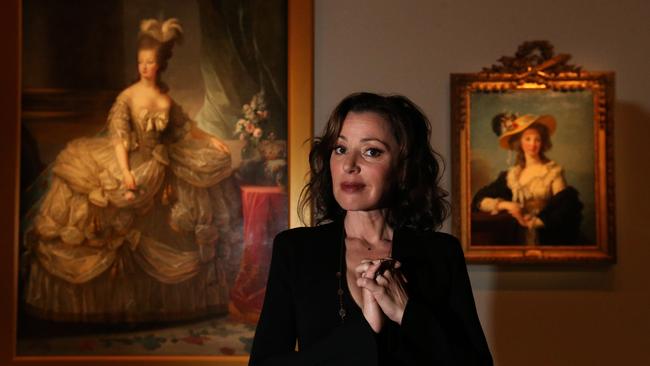
“That’s a considered decision made by an organisation that follows a particular strategy. My voice really hasn’t changed that much. I still make pop songs. They could be played on radio. I understand international acts are important, but we have an industry that needs to be supported and I know that’s not the case.”
Arena is certainly doing her bit to support the local industry. Greatest Hits Interpretations features Aussie artists such as Jimmy Barnes, Jessica Mauboy, Kate Miller-Heidke and country star Morgan Evans reinventing her songs.
“Hearing someone else tell those stories, you appreciate them more,” she says.
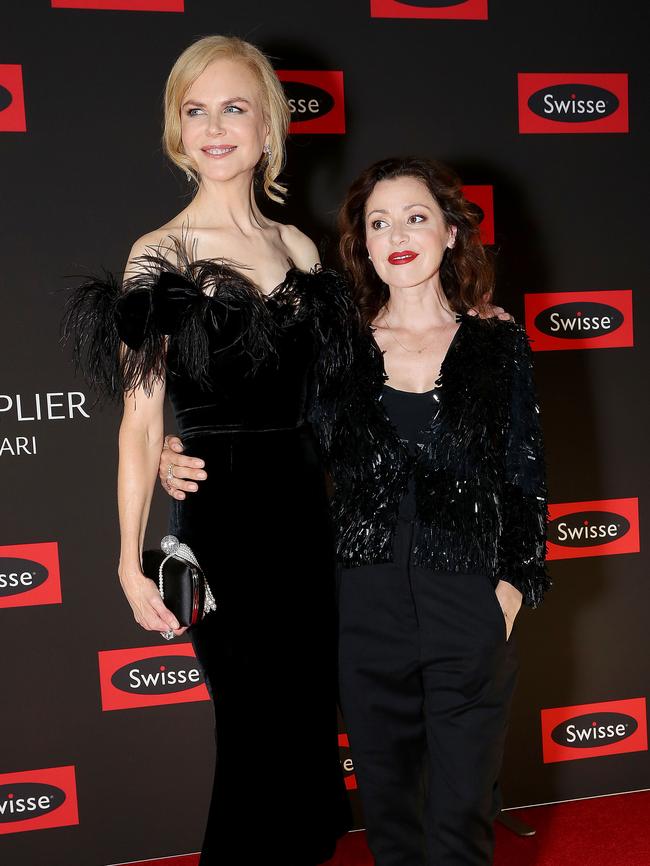
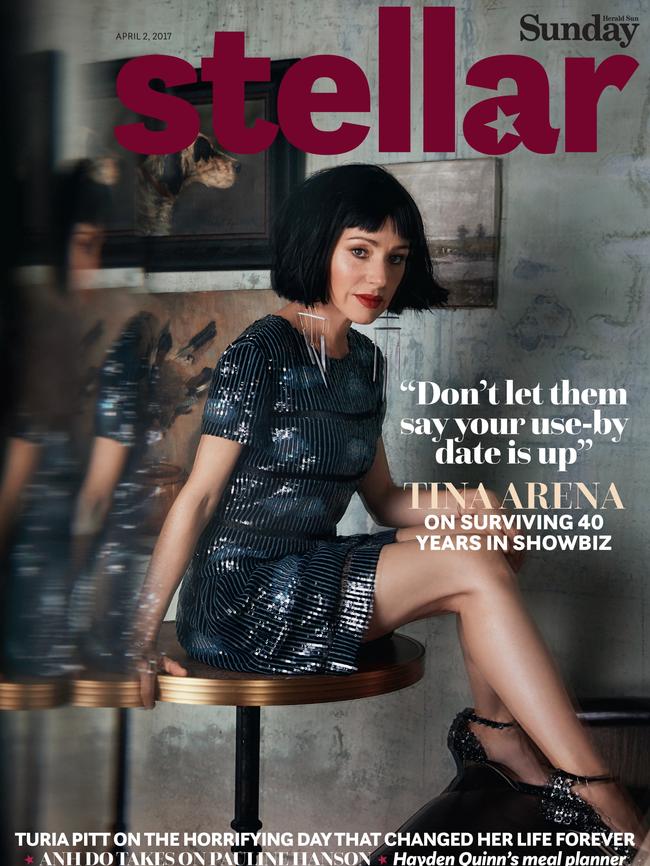
Arena has also re-recorded “Sorrento Moon” as a duet with Dannii Minogue – the pair’s first time in a studio together since Young Talent Time.
“That song is Dannii’s dad’s favourite,” Arena says. “Look at the history we’ve shared – we’ve got such a deep connection that goes back to when we were kids. It was obvious to do something together again. She’s adorable, the most loving woman who’s had the most extraordinary amount of growth as a human being and in her job.”
Arena is planning a party for her milestone birthday, but isn’t worried about the implications of ageing, and says her face remains “au naturel”.
“DNA plays a major role in that. And staying out of the sun. You want to age? Go out in the sun. If I want to do any of that [cosmetic] stuff, I can do it later. Each to their own. That’s the beauty of turning 50 – just do whatever you want; I’m not interested in judging anyone.”
Her anniversary year will be filled with touring, French music and bracing for her son becoming a high-school student. And for the first time in a long time, Tina Arena is contemplating taking a long break next year.
“I want to do some other things,” she explains. “Maybe go to uni, maybe some theatre... I just need to get a bit of detachment. There’s so much more to learn and so much to do.”
Photography: Tāne Coffin
Styling: Marina Afonina
Hair: Anthony Nader
Make-up: Filomena Natoli.
Location: Charlie Parker's Bar, Paddington.
Tina Arena’s Greatest Hits & Interpretations album (EMI) is out on April 7. Her Innocence To Understanding tour kicks off in Brisbane on September 6.
Originally published as Tina Arena: ‘Why I won’t take selfies with fans’

